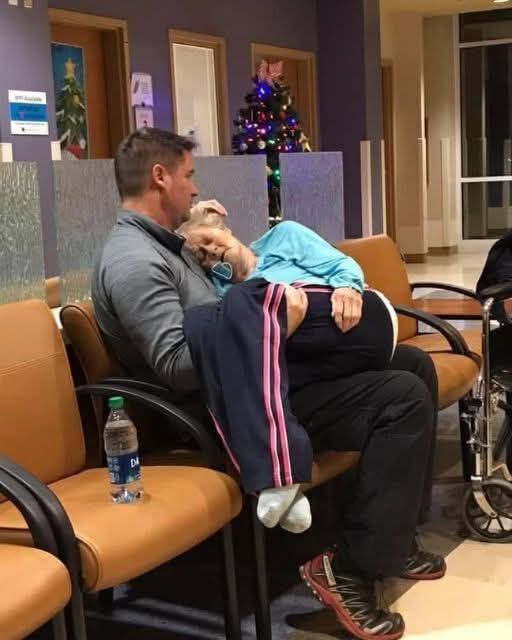I didn’t have the heart to ask what she meant by “again.”
Later, the tests came back inconclusive. The doctors recommended keeping her overnight for observation. That upset her—she muttered about needing to get home to water her plants. I stayed with her, sleeping in the stiff chair next to her bed and waking up every so often to make sure she was okay.
The next morning, she seemed more alert. Her eyes met mine, clear for a moment.
“Thank you, Liam. You’re a good grandson.”
Relief washed over me. “You remember me, Grandma?”
She smiled. “Of course I do. You’re my Liam.”
But then her gaze drifted again, distant. “Teddy, did you bring the newspaper?”
These moments of clarity—followed by confusion—became a familiar rhythm. My sister Sarah came by later. I told her everything: the mix-ups, the memory slips, the plea not to leave.
Sarah gently squeezed my hand. “The doctor said this might happen.”
I knew she was right. Still, it was hard to accept. This woman—who’d taught me how to bake, who’d read bedtime stories, who’d always been there—was slowly slipping away.
In the weeks that followed, her memory faded further. Some days she called me by her brother’s name. Other times, she barely looked at me at all. But in between, there were brief sparks—moments where her eyes lit up, where she’d say “Liam” or squeeze my hand. Those moments kept me going.
One afternoon, I sat beside her, reading Little Women, her favorite book. She was usually restless, but that day, she sat quietly, listening.
When I reached the part where Jo says goodbye to her family, Grandma reached out and held my hand.
“Don’t go, Teddy,” she whispered.
My throat tightened. “I’m right here, Grandma. I’m not going anywhere.”
She looked at me with a sadness I’ll never forget. “You always leave.”
I didn’t know exactly what she meant. But I could feel the pain in her voice—and I knew that, to her, it was real. So I stayed. I held her hand.
“I promise,” I said. “I’m not leaving.”
Later that week, during one of her more lucid moments, she looked out the window at the autumn leaves and asked, “Liam, do you remember Danny?”
Danny—her son, my uncle—had passed away when I was very young. I barely remembered him.
“Yes, Grandma,” I said softly.
Her voice was full of emotion. “He left me too soon.”
And then, it all made sense. The confusion, the mix-ups. She hadn’t just been calling me the wrong names. She had been remembering the people she had loved—and lost. To her, I wasn’t just Liam. I was also Teddy. I was Danny. I was someone who had come back.
From that day on, I stopped correcting her. When she called me by another name, I responded with love. I became whoever she needed me to be—her grandson, her brother, her son.
Because even when the memories faded, the feelings remained. And I knew the most important thing I could give her was peace.
The closure wasn’t dramatic. There was no sudden recovery. But one day, she looked at me, said “You remind me of Danny,” and added softly, “He had your kind eyes.”
It wasn’t a full memory—but it was something. A bridge between her past and my present. A shared space where love lived, even when clarity didn’t.
Eventually, Grandma passed peacefully, surrounded by family. In the days that followed, I held close the lessons she left behind.
That love isn’t always about recognition—it’s about presence. That even when the mind forgets, the heart still remembers.
And that sometimes, the greatest gift we can offer someone is simply to sit beside them, to hold their hand, and to stay.
If this story moved you, please share it. Sometimes, love doesn’t need to be remembered—it just needs to be felt. 💙

